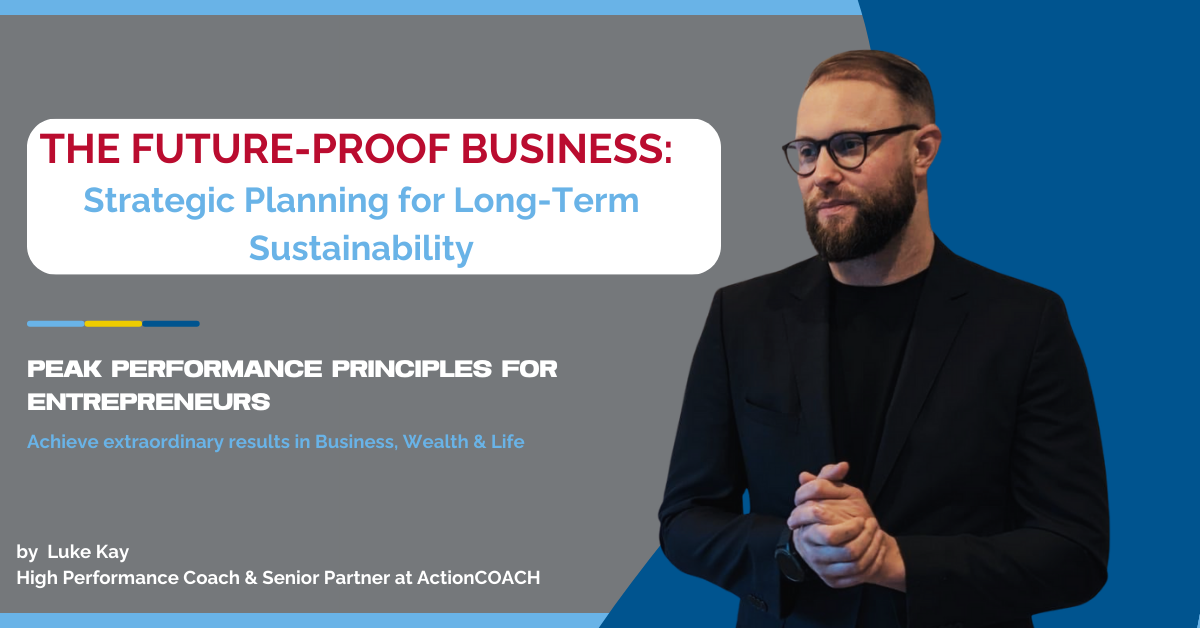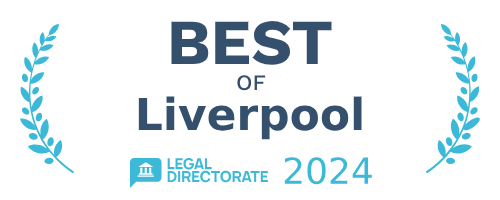
In an era of rapid technological advancements, shifting market dynamics, and global uncertainties, building a future-proof business is more crucial than ever.
Leaders must look beyond short-term gains and develop strategies that ensure long-term sustainability. Let’s explore the key principles that enable businesses to thrive in an ever-changing landscape.
Peak Performance Principle #1: Embrace Scenario Planning
Future-proofing your business starts with anticipating various possible futures. Scenario planning allows leaders to prepare for multiple outcomes, ensuring the organisation remains adaptable and resilient.
Regularly engage in scenario planning exercises. Identify potential disruptions, market shifts, and technological advancements that could impact your industry. Develop flexible strategies that can pivot based on which scenarios unfold.
Principle #1 Case Study: Royal Dutch Shell’s Scenario Planning
Royal Dutch Shell has been a pioneer in scenario planning since the 1970s. Their approach goes beyond simple forecasting to imagine drastically different possible futures.
In the early 1980s, Shell’s scenario planning anticipated the eventual collapse of the Soviet Union, allowing the company to position itself advantageously when it occurred. More recently, Shell’s scenarios have helped the company navigate the transition to renewable energy. By consistently thinking decades ahead, Shell has maintained its position as one of the world’s largest energy companies despite significant industry disruptions.
Peak Performance Principle #2: Invest in Continuous Innovation
To remain relevant in the long term, businesses must prioritise innovation. This doesn’t just mean developing new products, but also reimagining processes, business models, and customer experiences.
Create a culture that encourages innovation at all levels. Allocate resources for research and development. Implement systems to capture and develop ideas from employees across the organisation.
Principle #2 Case Study: Amazon’s “Day 1” Mentality
Amazon’s commitment to continuous innovation is encapsulated in Jeff Bezos’s “Day 1” philosophy, which treats every day as if it were the company’s first.
This approach has led Amazon to consistently disrupt itself and expand into new areas. From its origins as an online bookstore, Amazon has evolved into e-commerce, cloud computing (AWS), artificial intelligence (Alexa), and even space exploration (Blue Origin). By maintaining a startup-like focus on innovation, Amazon has grown into one of the world’s most valuable companies and continues to shape multiple industries.
Peak Performance Principle #3: Prioritise Sustainability and Corporate Responsibility
Long-term business sustainability is increasingly linked to environmental and social sustainability. Future-proof businesses recognise this connection and integrate sustainability into their core strategies.
Develop a comprehensive sustainability strategy that goes beyond compliance. Look for ways to create value through sustainable practices. Engage with stakeholders to understand and address their sustainability concerns. 
Principle #3 Case Study: Unilever’s Sustainable Living Plan
Unilever’s Sustainable Living Plan, launched in 2010, is a prime example of integrating sustainability into core business strategy. The plan set ambitious targets to decouple the company’s growth from its environmental impact while increasing its positive social impact.
By 2020, Unilever had achieved 80% of its sustainability targets, including sourcing 62% of agricultural raw materials sustainably and enabling 2.34 million women to access initiatives aiming to promote their safety, develop their skills or expand their opportunities. Importantly, Unilever’s “Sustainable Living” brands grew 69% faster than the rest of its business, demonstrating that sustainability can drive business growth.
Peak Performance Principle #4: Develop a Learning Organisation
In a rapidly changing world, the ability to learn and adapt quickly is crucial. Future-proof businesses cultivate a learning mindset throughout the organisation.
Invest in continuous learning and development programs. Encourage knowledge sharing across the organisation. Create systems to capture, analyse, and act on new information quickly.
Principle #4 Case Study: Toyota’s Kaizen Philosophy
Toyota’s commitment to continuous improvement, or “Kaizen,” has been a key factor in its long-term success. This philosophy encourages every employee, from the factory floor to the C-suite, to constantly look for ways to improve processes and products.
Toyota implements this through practices like the “Toyota Production System” and “Quality Circles,” where employees regularly meet to discuss and solve problems. This approach has allowed Toyota to consistently improve quality, reduce costs, and adapt to changing market conditions. It’s a key reason why Toyota has remained one of the world’s largest and most respected automakers for decades.
Peak Performance Principle #5: Build Strategic Partnerships and Ecosystems
Future-proof businesses recognise that they can’t go it alone. They actively build partnerships and participate in broader ecosystems to access new capabilities, markets, and innovations.
Identify potential partners that complement your strengths and compensate for your weaknesses. Look for opportunities to participate in or even create business ecosystems. Develop the capabilities needed to be a good partner and ecosystem player.
Principle #5 Case Study: Microsoft’s Open Source Strategy
Microsoft’s shift towards embracing open source software is a prime example of building strategic partnerships and ecosystems for long-term sustainability.
Under CEO Satya Nadella, Microsoft has moved from seeing open source as a threat to actively participating in and contributing to open source projects. This shift has allowed Microsoft to tap into a vast ecosystem of developers, improving its products and expanding its reach. For instance, Microsoft’s acquisition of GitHub and its partnership with Linux have positioned it as a leader in developer tools and cloud computing, ensuring its relevance in a rapidly evolving tech landscape.
Implementing Future-Proof Strategies in Your Organisation
Creating a future-proof business requires ongoing effort and commitment. Here are some steps to get started:
1. Conduct a future-readiness assessment of your organisation.
2. Implement regular scenario planning exercises with your leadership team.
3. Review your innovation processes and look for ways to encourage more creativity and experimentation.
4. Develop or refine your sustainability strategy, ensuring it’s integrated with your core business strategy.
5. Assess your organisation’s learning capabilities and implement systems to enhance knowledge sharing and adaptation.
6. Identify potential strategic partners and ecosystems that could enhance your long-term sustainability.
Remember, future-proofing is not about predicting the future with certainty, but about building the capabilities to thrive in whatever future emerges.
Are you ready to future-proof your business for long-term sustainability? The first step is to honestly assess your business’s readiness for future challenges and opportunities.
What’s one area of your business that, if strengthened, could significantly enhance your ability to thrive in the long term?
Ready to build a truly future-proof business? Book a complimentary Strategy Session with me. We’ll conduct a comprehensive assessment of your organisation’s future-readiness and develop a customised plan to enhance your long-term sustainability.
Don’t let future disruptions catch you off guard – let’s build a resilient, adaptable, and sustainable business together.
Still Not Sure?
If you want to find out more about how we can help you and your organisation feel free to book a complimentary discovery call with myself here.
It should only take 15/20 so I can find out a little more about You and Your Organisation and advise on the next steps.
Book Complimentary Discovery Call
Events
We hold events on a monthly basis as part of our Business Growth Academy and 1-2-1 Business Coaching. If you want to attend one of our events for FREE and meet the rest of the entrepreneurs in our business growth community then please feel free to check out our events page or book onto our next Business Growth Academy Event or 90 Day Planning by clicking on our events page here.

We’re beyond excited to share that ActionCOACH Liverpool has been named the Best Business Consultants in Liverpool by The Legal Directorate UK for 2024! This amazing honour shows our dedication to helping businesses like yours succeed and grow.
https://liverpool.actioncoach.co.uk/best-business-consultants-in-liverpool/





